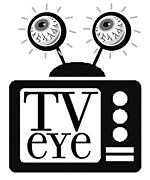TV Eye
Extended Networks
By Belinda Acosta, Fri., Aug. 25, 2006
In a fine example of how viewers – and "rogue" content creators – are flexing their muscle, there's the now well-known story of Nobody's Watching, which became an online hit in July. The comedy was shopped to the networks, dumped by the WB, and appeared on YouTube to such fanfare that NBC decided to pick up the series. A second pilot, The Adventures of Big Handsome Guy and His Little Friend was passed over by Fox but "mysteriously popped up on at least three viral-video Web sites," according to an Aug. 4 post in IWantMedia.com.
In a more recent report from the National Association of Television Program Executives' Daily Lead, "At least 10 network pilots have been leaked to video-sharing sites such as YouTube." Spokespeople from various networks express thanks in viewer interest with a career politician's gentility followed by the more ominous, "We will get to the bottom of this." In other words, keep your paws off our product. An interesting reaction, considering that in their tizzy to get a good seat on the new media bandwagon, several networks now find themselves at odds with Hollywood's creative guilds.
The networks say they are within their rights, to use their content however they wish. The guilds (writers, directors, screen actors) say no provisions for new media are in place, particularly in regard to compensation (it always comes down to money), and for the networks to assume the existing contracts cover new media is incorrect. (As an interesting sidebar, the writers for the reality series America's Next Top Model have walked out to demand union wages. Again, there is no language addressing reality-show writers in current contracts, so the networks pay them below union wages. While at first snubbing them, the Writers' Guild has been targeting reality-show writers for some time now in hopes of thickening their fold. If ANTM writers are successful, the repercussions would be great for writers, but a blow to networks that have enjoyed this low-cost way of producing content.)
The trades are full of quotes from network execs who are steely in their resolve to get a foothold in this new media business, but the fact of the matter is that the traditional TV experience will not work on the computer screen. You can't fit a square peg into a round hole. Moreover, who said the hole was round? Who said it was a peg to begin with?
"Any great change must expect opposition, because it shakes the very foundation of privilege," said slave abolitionist and early feminist Lucretia Coffin Mott. It may be hyperbolic to say power to the people: TV is being taken from the hands of a few to a broader spectrum of creative types who are making and seeking new content that defies standard operating procedures. From what I've observed, if things continue as they are now, with TV execs remaining stubborn in their determination to chase their own tails in an effort to figure it out, TV will remain essentially the same, but as technology becomes swifter, cheaper, and more accessible (and the cost of a cable subscription continues to skyrocket) the eyes will go elsewhere.
Everyone thinks he or she has the solution. Here is mine: Reinvent the hardware. Ready or not, high-definition TV looms on the horizon, but that only affects how the images are viewed. A hybrid TV needs to be invented, one that blends the best aspects of viewing with a live Internet experience (as in chat spaces) while retaining DVR technology and the viewer's ability to make choices beyond buying something (which seemed to be the guiding force for the various iterations of interactive TV).
How, you ask? Hell if I know. I'm just telling you what I want.
As always, stay tuned.








